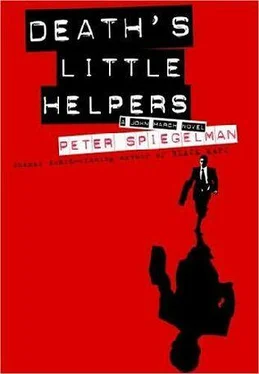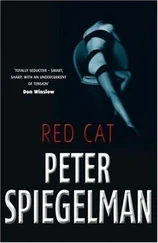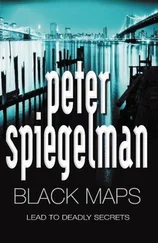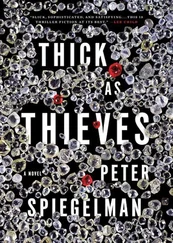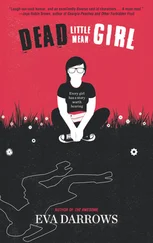Peter Spiegelman - Death's little helpers
Здесь есть возможность читать онлайн «Peter Spiegelman - Death's little helpers» весь текст электронной книги совершенно бесплатно (целиком полную версию без сокращений). В некоторых случаях можно слушать аудио, скачать через торрент в формате fb2 и присутствует краткое содержание. Жанр: Криминальный детектив, на английском языке. Описание произведения, (предисловие) а так же отзывы посетителей доступны на портале библиотеки ЛибКат.
- Название:Death's little helpers
- Автор:
- Жанр:
- Год:неизвестен
- ISBN:нет данных
- Рейтинг книги:5 / 5. Голосов: 1
-
Избранное:Добавить в избранное
- Отзывы:
-
Ваша оценка:
- 100
- 1
- 2
- 3
- 4
- 5
Death's little helpers: краткое содержание, описание и аннотация
Предлагаем к чтению аннотацию, описание, краткое содержание или предисловие (зависит от того, что написал сам автор книги «Death's little helpers»). Если вы не нашли необходимую информацию о книге — напишите в комментариях, мы постараемся отыскать её.
Death's little helpers — читать онлайн бесплатно полную книгу (весь текст) целиком
Ниже представлен текст книги, разбитый по страницам. Система сохранения места последней прочитанной страницы, позволяет с удобством читать онлайн бесплатно книгу «Death's little helpers», без необходимости каждый раз заново искать на чём Вы остановились. Поставьте закладку, и сможете в любой момент перейти на страницу, на которой закончили чтение.
Интервал:
Закладка:
The search services had provided me with docket numbers, and now I was plowing through online court records and the SEC database for the details of each case. I hadn’t realized there were so many of them. Nor had I realized that, in addition to charging Pace-Loyette with wrongdoing, some made claims against Danes specifically. A lawyer named Toby Kahn represented Danes in the suits, and I spoke to his voice mail and asked him to call. It was slow going, and I hadn’t gotten through many cases when it was time for my meeting at Pace-Loyette. I added water to Jane’s tulips and headed out the door.
Pace-Loyette’s headquarters occupied eight floors of a tower at 52nd Street and Sixth Avenue, a block up from Radio City. The main reception area was on the twentieth floor and was done up like Mies van der Rohe’s rumpus room. The furniture was black leather, chromed steel, and sharp angles, the marble floors were bare and whiter than eggshells, and the walls were mostly glass.
The reception desk was a glass and steel sliver, nearly invisible edge on, and so was the receptionist. She was tall and thin and bloodless, with platinum hair and big gray eyes. Her dress was steel-colored silk, and she spoke softly and in a monotone. She bade me sit, and played her fingers across the keys of a slim phone and whispered into the handset. She put down the phone and looked at me and nodded, but the look and the nod were empty of meaning. In a while a young woman came to get me. She was small and nervous-looking.
I followed her onto the elevator, and off again on the twenty-fourth floor. We went to the left, past a waiting area with blocky leather chairs and glass end tables, and through a pair of glass doors. Everything beyond the doors- the carpet, the cubicle walls, the filing cabinets and furniture- was shades of gray. The cubicles were full of people talking on telephones and peering at computers. Their low voices merged into an ambient murmur, punctuated only by the soft tapping of keys. The young woman led me down a hallway to a door with Turpin’s name on it. She knocked sharply and pushed it open and I went in.
It was a corner office, square, with big windows and nice light and views west and north. I saw the CBS building across 52nd Street and a chunk of the Hilton across Sixth Avenue. The walls were white and the floors were covered in thick beige carpet. The furniture was office modern: warm woods and brushed steel, earth tones and soothing patterns. There was a tan sofa to my right, and two matching chairs arranged around a low table. An L-shaped desk dominated the other end of the room, with a leather throne and a long credenza behind it and a pair of chairs out front. There was a woman in one of the chairs, who looked up when I came in. There was a man on the throne, who did not.
The woman was a well-maintained forty. She wore a black suit and a white blouse, with a green silk scarf at her neck. Her hair was a glossy auburn, with just enough gray to make it plausible, and there were freckles sprayed across her cheeks. Laugh lines bracketed her mouth and brown eyes, but just then she wasn’t laughing.
From behind his desk, Turpin ignored me elaborately. He was fiftyish and small, but fit-looking. His pin-striped jacket lay smoothly on his shoulders and around his bright white shirt. His gray hair was short and parted neatly on the right, and his brows were dark, perfectly clipped lines above nearly black eyes. His face was clean-shaven, and his skin fit so tightly over the muscle and bone underneath that it gave him a slightly simian look- like a very tidy chimp. He perused the monitor before him and laughed to himself now and then, ostensibly at something he saw there. No one said anything.
The woman looked at me and gave nothing away. Turpin gazed more intently at his screen and laughed more loudly. I figured the performance might go on for a while, so I took a seat next to the woman and looked at Turpin’s bric-a-brac.
There was a framed photo on the credenza behind him, of himself in the cockpit of a sailboat with three people I took to be his wife and kids. The wife had lank blond hair, a sour mouth, and a seasick look. The kids looked teenaged and sullen.
Next to the photograph, in a neat row, were a dozen Lucite tombstones commemorating M and A deals that had been presided over by the law firm of Hazelton, Brown amp; Cluett. I hadn’t heard of any of the companies involved, but I knew Hazelton as a white-shoe securities law firm. The deals were a decade old, and Dennis Turpin had been the firm’s officiating partner on each one.
It was at best a step sideways- and arguably a step down- to go from partner at a firm like Hazelton to head of legal at Pace-Loyette, and I wondered what had happened to Turpin’s career. Maybe his billings had dried up when the mergers and acquisitions market tanked, and his partners had forced him out. Or maybe they’d just gotten tired of his overacting.
Down from the tombstones was an elaborate pewter beer stein, decorated with two enamel seals, one the Justice Department’s, the other the FBI’s. Next to it was another framed photo: Turpin in black tie standing with the U.S. Attorney for the Southern District of New York. Alongside that was a coffee mug with the Marine Corps insignia on it. Semper fi. Great. Turpin gave a last little laugh and swiveled in his chair to face me.
He looked at me and sighed and looked around the room theatrically, as if he’d been expecting someone else.
“That’s it?” he asked. “Just you?” I didn’t say anything. “No representation? No counsel?” His voice was flinty, and the New England accent more pronounced. “Friends of mine downtown told me you always travel with a lawyer. They said it was a good thing, too.”
He studied my face for surprise but I just raised an eyebrow. Turpin shrugged.
“Jan Carmody from Harris, Coldwater, our outside counsel,” Turpin said, gesturing with his head toward the woman. He looked at me some more. “You know, I worked a deal with your brother Ed a few years back,” Turpin said. “A management buyout that Klein funded.”
He looked for surprise again, but again there was none. Wall Street is in many ways a small town and my family is not unknown there, so I’d long ago lost interest in the game of who knows whom. But I was amused that Turpin had referred to my brother as Ed. While Edwin is his given name, no one who knows my brother even casually calls him anything but Ned. Turpin looked at Jan Carmody.
“You know Ed March, over at Klein, don’t you, Jan?”
She nodded and smiled thinly. “I know Ned,” she said. Turpin didn’t notice her correction, or pretended not to. That amused me too.
“And we know you too,” Turpin said. “We know you fancy yourself some kind of cowboy, and we know what a high-handed pain in the ass you can be. So let’s get something straight from the outset: We have no intention of putting up with your bullshit here.” Turpin pointed at me, and the scolding tone I’d heard on the phone came back to his voice. “You keep harassing my people, you mess with the conduct of our business, and I’ll have your license- and your goddamned trust fundin my pocket before I’m through.” Turpin gave me a hard look. Jan Carmody stuck with empty.
I smiled at them. “Unless I’m mistaken, you asked me here today, and I thought it was to have a grown-up conversation, not to sit through a piece of bad theater.” Carmody stiffened. Turpin began to color and drew a breath to speak, but I continued. “I understood what you said yesterday, and I still understand it today, though I hardly think a few phone calls qualify as harassment. My only interest is in finding Gregory Danes. If you want to talk about that, fine. Otherwise, I’ll let you get back to work.” Turpin’s lips were pressed together and his face was dark. Jan Carmody cleared her throat, and she and Turpin exchanged glances. She spoke.
Читать дальшеИнтервал:
Закладка:
Похожие книги на «Death's little helpers»
Представляем Вашему вниманию похожие книги на «Death's little helpers» списком для выбора. Мы отобрали схожую по названию и смыслу литературу в надежде предоставить читателям больше вариантов отыскать новые, интересные, ещё непрочитанные произведения.
Обсуждение, отзывы о книге «Death's little helpers» и просто собственные мнения читателей. Оставьте ваши комментарии, напишите, что Вы думаете о произведении, его смысле или главных героях. Укажите что конкретно понравилось, а что нет, и почему Вы так считаете.
